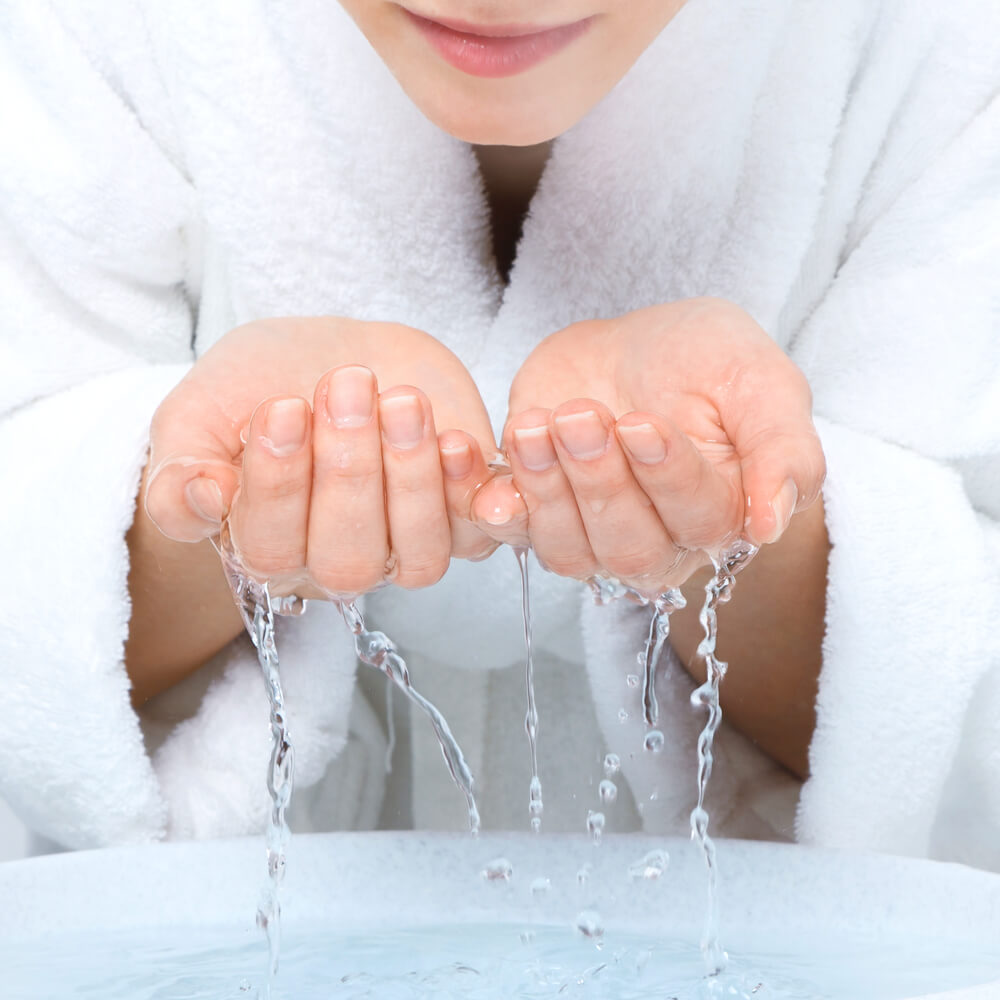Now that spring is here, most likely, you’re busy sprucing up your home, doing some needed spring cleaning. However, you may not have thought much about how improving your water can also be considered as spring cleaning. By using soft water, instead of hard water, for cleaning your surfaces and washing your linens, you get much better results. Here’s how spring cleaning can relate to water filtration, along with the signs suggesting you may have a hard water problem and how installing a water filtration system is the solution.
What Do You Mean By Hard Water?
First, understand what we mean by the term “hard water”. Put simply, hard water is water that contains a high level of minerals. Groundwater usually penetrates through limestone, resulting in it collecting deposits of calcium and magnesium. When these minerals are in your pipes and bond with other metals, this can lead to hard water that runs through your plumbing and faucets. Unfortunately, most homeowners don’t even realize they have a hard water problem.
Besides calcium and magnesium, your drinking water can contain iron and other trace minerals that come from lakes, rivers, and the soil. Even though these minerals aren’t that harmful to you, they can have some possible bad bacteria in them and damage your clothing, plumbing fixtures, and appliances.
Seven Signs of Hard Water
It’s important to recognize the common signs of hard water and how this problem can impact your home and even your health. Some of these “red lights” include:
1. Unsightly, reddish-brown stains
No one wants to see embarrassing, ugly reddish-brown stains on their fixtures and porcelain. The is caused by hard water and iron deposits, which resemble rust spots. In most cases, the iron in your hard water comes from rusty pipes. Do you find yourself struggling to remove these stains, using a lot of vinegar and “elbow grease”? The bad news is that these stains will continue to resurface until you correct the hard water condition.
2. Foul-smelling and metallic-tasting water
One of the main clues you may have a hard water problem is detecting an odd smell or metallic taste in your drinking water. This is typically the first sign of a water conditioning issue. It reveals that there’s a type of bacterial contaminant in your water, such as a hard water condition. Hence, if your water has a metallic taste or bad odor, most likely, it’s from too much iron.
3. Laundering problems
Hard water can negatively impact your laundry because of the turbulent relationship between minerals and detergent. Although you use soap for washing off grime and dirt, when your soap fails to rinse the grime off, it can cause soil to accumulate on your clothing. When you wash your clothes in hard water, your garments can look dingy as well as wear out quicker.
Furthermore, hard water can cause your towels to become rough and scratchy. Hard water can also stain clothing and cause white clothing to yellow prematurely because of the iron content in water. Often, people who have hard water wind up buying extra laundry detergent and use hotter water for getting their clothes clean.
4. Stained bathroom fixtures and white hard water spots
Another problem is that hard water can stain bathroom fixtures. If you notice white spots and/or stained bathroom fixtures, you may have hard water. Hard water spots are the result of water that evaporates, leaving behind calcium deposits. Spotty dishes can be another clue. Thus, if you see spots on your dishes, it’s usually because of the water and not your dishwasher.
5. Soapy scum on shower curtains
Even more problematic is seeing soap scum that’s left on your shower curtains because this can cause a microbial biofilm to develop that may have the type of bacteria that can spread disease. If you’re constantly cleaning your bathroom or kitchen, while using more cleaning products, consider that you may have hard water.
6. Poor bathing and showering
Hard water can make it more difficult to lather while bathing or showering since it’s harder to remove all the soap from your body. This leaves a soapy film residue on the skin. Another problem is that the mineral deposits from the hard water can clog your showerhead. As a result, you don’t get as clean as you should. Moreover, your hair may be more unmanageable, and your skin may become dry and itchy
7. Worn-out appliances
Hard water can also age and damage many of your appliances, including your dishwater and water heater. This can lead to expensive repair bills or having to replace your appliances.
The Water Filtration Solution
The solution to a hard water problem is installing a water filtration system or water softener. Consider how a water softener removes minerals, such as iron, calcium, and magnesium, from your water. By investing in a water filtration system, you can save money as well as improve your home and health. Don’t continue to settle for hard water. Contact us and learn more about the benefits of filtered water, along with our wide range of services.






